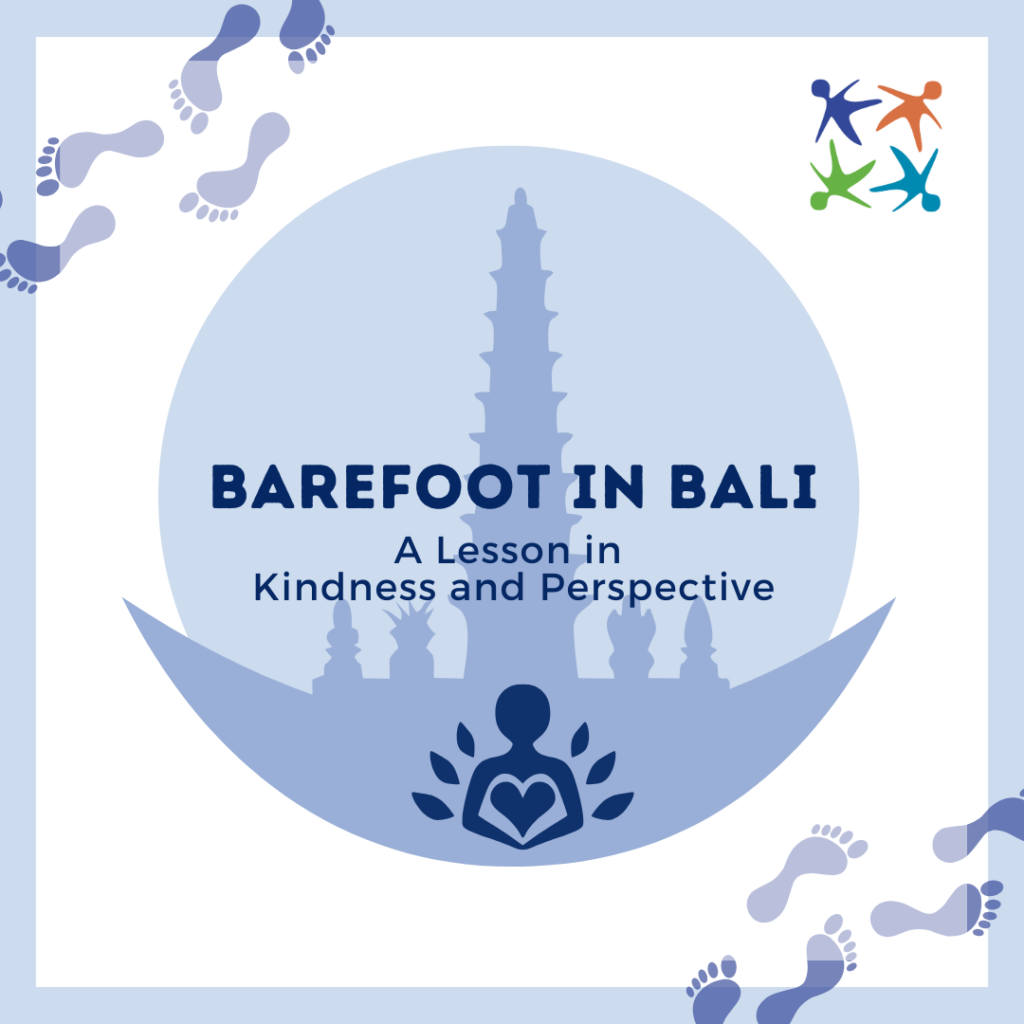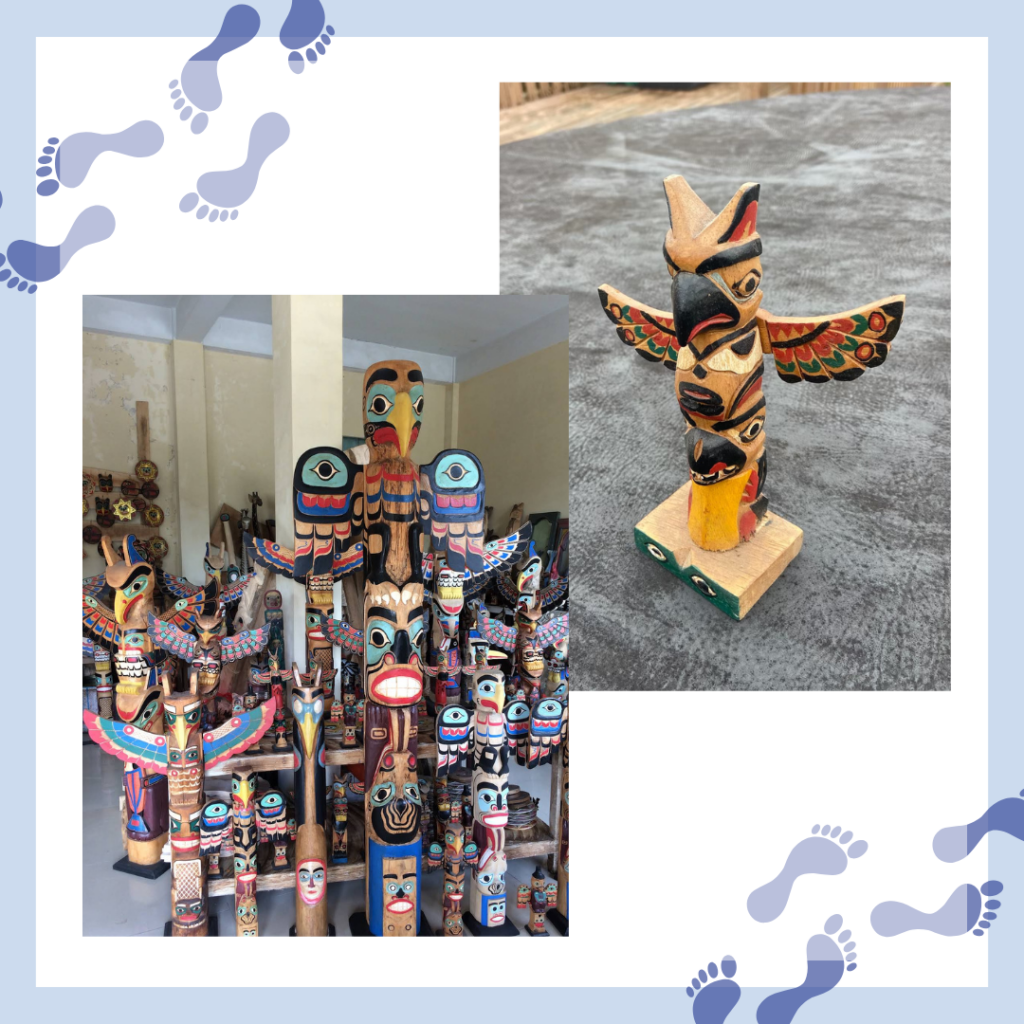Bali: a land of sprawling beaches, lush rice fields, and a spirituality that seems to hum in the air.
For three weeks, I had the immense privilege to wander throughout this island paradise, soaking in its beauty and culture. But beyond its stunning landscapes, Bali offered me something far more valuable—a humbling lesson in kindness and perspective.
The Balinese people are among the most patient, kind-hearted, and considerate individuals I have ever encountered. Their lives are deeply intertwined with spirituality, particularly the belief in karma: the idea that what you give to the world will come back to you.

But experiencing this kindness often felt like a stark contrast to the tourism industry that dominates the island.
Before my trip, I’d often heard people claim that “Bali is so cheap.” It’s a phrase I have grown to resent, realizing just how ignorant and dismissive it is. Sure, our currency might stretch further, allowing us to indulge in five-star villas with private pools, daily massages, and cocktails by the ocean. But this disparity has also driven up costs for the locals, forcing many of them out of their own communities and into long commutes just to make a living.
Bali is not “cheap” for the people who call it home.
The tourism industry may bring money to the island, but it’s the locals who bear the fallout—rising living costs, overdevelopment, pollution, and the burden of catering to tourists who too often bring entitlement instead of gratitude.
Despite it all, the Balinese remain humble and endlessly kind, steadfast in their belief that spreading good into the world will bring good back to them.
One day, I set out to explore the island. My first stop was a beach bar recommended by a tourist—an Instagram-worthy oasis where I imagined myself lounging by the infinity pool, cocktail in hand. Reality, however, was a chaotic scene of tourists and influencers, all vying for attention and validation. It felt less like Bali and more like Los Angeles. I left almost immediately.
Wandering down the bustling streets, I stumbled upon a small shop tucked between countless souvenir stalls. Just as I was about to walk past, the strap on my flip-flop broke, leaving me stranded and shoeless.
It felt like fate.
I laughed at the absurdity of it all and decided to step inside, barefoot.
The shop owner, an elderly Balinese woman, greeted me with a warm smile, laughing along with my misfortune. She showed me her wares—beautiful hand-carved and painted totem poles, each more intricate than the last. I was captivated.
When I asked the price for two small carvings, she told me 100,000 IDR—barely $5 CAD each. It was an unbelievable bargain for something so beautifully crafted, so I handed over the money without hesitation.
As I browsed, her husband joined us. Despite the language barrier, they asked where I was from and lit up when I said Canada. Their warmth and gratitude were palpable. Before leaving, I handed over an additional 200,000 IDR—less than $20 CAD—hoping to express my appreciation for their artistry.
The reaction was overwhelming. The couple embraced me, thanking me profusely. It was as if that modest sum had brightened their entire week.
They tried to give me more artwork as a thank-you, but I gently declined. I only relented when the woman handed me a small carving and placed her hand over her heart, insisting: “For you, keep.”

As I retrieved my broken flip-flops to leave, she reached down to grab her own sandals and put them into my hands: “For you, keep.”
I looked at her shocked as tears threatened to spill over.
Here I was—a stranger, a tourist with broken flip-flops, someone she would likely never see again—and yet she was willing to part with something so personal and practical for my comfort. In a society where shoes are not just a necessity but a symbol of mobility and dignity, this offer wasn’t just kind—it was extraordinary.
Her willingness to give up her own shoes, a vital possession in a place where walking is the primary mode of transport, highlighted her deep sense of humanity.
It wasn’t about pity or obligation; it was a pure, unhesitating act of kindness born from a belief in helping others, no matter the cost.
This wasn’t an affluent person giving away a surplus pair of shoes they’d forgotten they owned. This was someone who likely had only a few pairs, offering the very shoes she was wearing—her own.
It made me reflect on the kind of humility and community-centered values that are increasingly rare in more individualistic societies.
In Western culture, material possessions often signify success or stability.
For her, though, those shoes were just a thing—a tool to help her move through the world—not a part of her identity or status. Her action reminded me that true wealth isn’t measured in possessions or currency; it’s measured in compassion, in the willingness to give what little you have for the sake of another.
This wasn’t just about offering me shoes. It was about offering me comfort, reassurance, and a sense of belonging in a place far from home. Her act of kindness wasn’t just a transaction; it was a profound display of humanity—a reminder of what it truly means to take care of one another.
Of course, I refused. I would have walked home on glass than to have taken the shoes off this sweet woman’s feet, but the couple’s kindness didn’t end there—they retrieved some glue and proceeded to repair the strap on my flip-flop.
They took time out of their day to ensure that I wouldn’t have to walk home barefoot.
As I left their shop, holding their precious gifts and my mended sandals, I felt a profound sense of humility. Their kindness reminded me that happiness doesn’t come from material wealth or status. It comes from connection, compassion, and the small ways we show care for one another.
Bali taught me that having more doesn’t make us better or happier—it’s what we choose to give and how we treat others that truly defines us. The Balinese people embody this belief in every interaction, and their quiet resilience and generosity left an indelible mark on me.
And that day, I walked away with more than just a couple of beautifully crafted totem poles. I walked away with a renewed appreciation for humankind, and the powerful lessons we can learn from others when we’re open to them.
So to that point, I want to emphasize that Bali is far from “cheap.”
Rather, Bali is rich—in culture, in artistry, in spirit, and in the unyielding kindness of its people.
In our own lives, we would all do well to approach the world with a similar mindset. While we may not be able to offer up our shoes or give away our worldly possessions, we can look for opportunities to show kindness, patience, and respect.
Small acts – like holding the door for someone, being patient in moments of frustration, or offering a sincere compliment – have a ripple effect. Every positive action is a step towards creating a world where goodness flourishes.
Joss Pirker
Client Experience & Event Specialist,
Barefoot Facilitation Inc.
